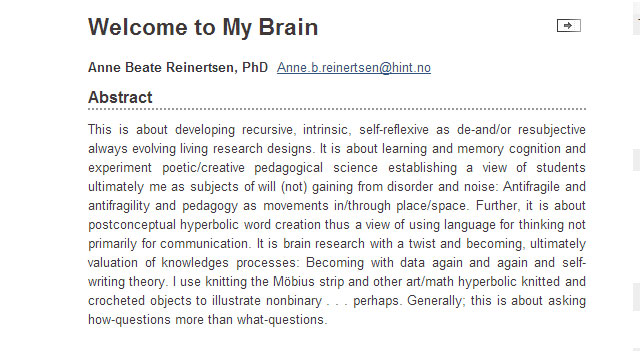Neuropsych
All Stories
Your ring-to-index finger ratio can tell a lot about what you’re good at and even what mental disorders you are prone to.
What is masculinity? Should gentlemen watch pornography? How do we raise sons to be better than their fathers? What’s for dinner? Comedian Jim Gaffigan mulls over these big questions and more.
▸
6 min
—
with
Narcissists aren’t born – they’re made, says development psychologist Alison Gopnik. She takes issue with the popular notion that children need to unlearn brashness and learn civility, when neuroscience shows that it tends to work in the reverse.
▸
2 min
—
with
Robin Williams was trapped inside his own rapidly-deteriorating brain, which was being overtaken by what his wife refers to as a “terrorist” — Lewy Body Disease.
The IQ test is the most widely known measure of intelligence, but are the ‘twice exceptional’ and other gifted members of society slipping between the cracks?
▸
4 min
—
with
A recent study from Yale University find that dogs are better at resisting peer-pressure and filtering useless information than human beings – but there’s value in that human flaw.
Forget multi-vitamins, pick up a happy spouse instead. This study suggests the enormous upward effect of having a partner who has a happy nature.
Is introversion sometimes invoked unwittingly to mask outright rude behavior? The answer is: it’s complicated. Here’s what introverts and non-introverts can do to navigate the complexity.
Does smiling make you happier? These and many other popular claims in psychology are not standing up to scrutiny. Here’s what that means for science.
A new study shows that addressing the ADHD epidemic may require a dose of physical activity, so kids can refocus and learn effectively in a classroom.
Surprisingly, this study was not funded by HBO, Netflix, Hulu or the Illuminati.
A new study reveals that people naturally fall into 4 different personality types while making decisions: Optimist, Pessimist, Trusting, or Envious.
Nikola Tesla, Franz Kafka, and Winston Churchill all practiced polyphasic sleep.
Developmental psychologist Alison Gopnik has done more than just ‘think of the children’, she wrote a book – and it rules favorably for free play and the end of scholastic parenting.
▸
6 min
—
with
Is the animal kingdom oblivious to our jokes or just a really tough crowd? Bill Nye explores the link between intelligence and humor.
▸
4 min
—
with
Mindfulness mediation has many benefits, but to focus on the benefits is to miss the point of mindfulness.
Genius kids are caught in the Goldilocks oatmeal paradox – if there’s too much heat on extracting their ability they suffer, but keep too cool a distance and they’ll be wasted.
Want five or six extra days every year? Easy – choose streaming over network TV. Adults are sacrificing 130 hours, and kids 150 hours, to ads annually when they watch commercial programming.
Think happy, be happy? Maybe not. Harvard psychologist Susan David examines the backlash effect of forced positivity in our lives.
▸
6 min
—
with
The word parenting, as a verb, has only been around since 1958. Developmental psychologist Alison Gopnik examines when caregiving became the art of hovering, and the pitfalls and anxiety of trying to shape children instead of raise them.
▸
10 min
—
with
New psychology study finds people of higher intelligence to be much less physical than non-thinkers. You can take the utilized Need for Cognition Test yourself here to see if you’re a thinker.
Studies confirm that having experiences makes us happier than material possessions.
Around the world, people are embracing minimalism as a lifestyle, focusing less on owning things.
A new study finds that spanking is ineffective and leads to a host of psychological and cognitive issues when children grow up.
A new study confirms that zapping your brain with electricity might increase the ability for creative thought.
A variation of the “the trolley problem” and how a psychopath weighs his or her options differently than others.
Jealousy, we’ve all experienced it at one time or another in our relationships. Whether the threat is real or imagined, jealousy has the power to tear relationships apart. But for men and women, it’s usually over different things.
“Envy is a really stupid sin because it’s the only one you could never possibly have any fun at.” – Charlie Munger We’re social creatures. We spend an inordinate amount […]
A paper titled “Welcome to My Brain” has been published in the journal Qualitative Inquiryby Sage which is so unintelligible that it is baffling beyond belief. Unfortunately, the paper is […]





























